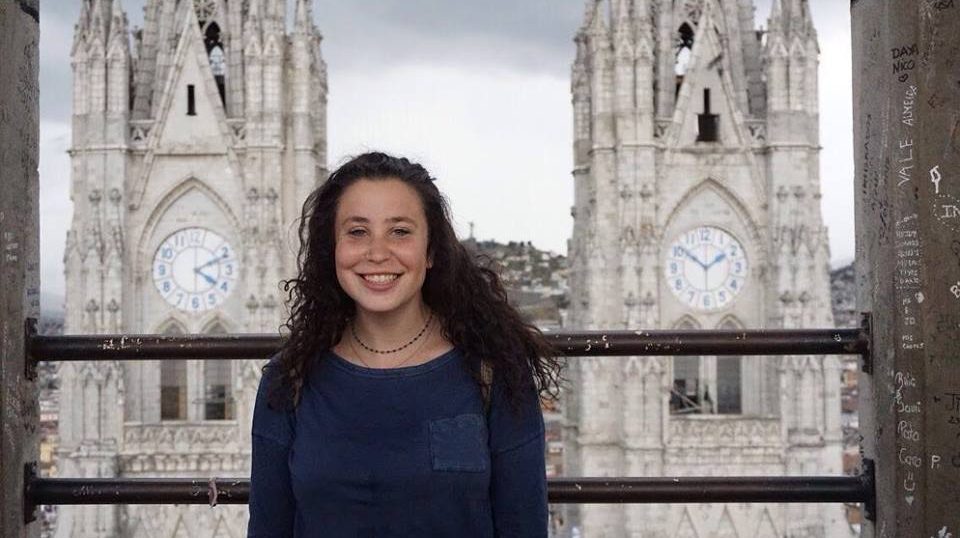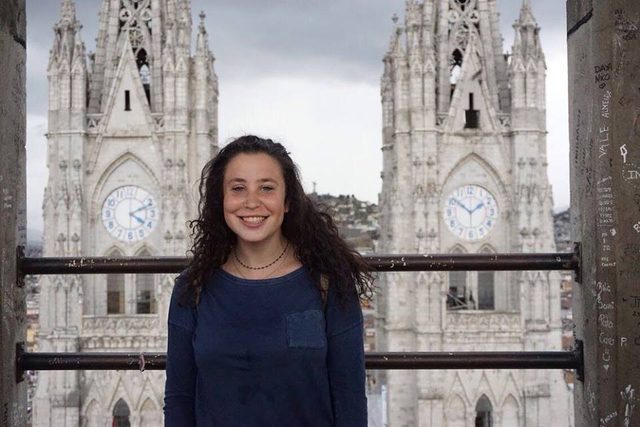Comps Insider: The Ethics of Photography
Nora Brown ’19 is a philosophy major and Spanish minor from Brooklyn, New York.
We recently spoke to Brown about her Comps project, which focuses on the ethical implications of photography.


What is your Comps topic?
My Comps is on the ethics of photography, specifically the ethics of photographing people. We often photograph extremely personal moments, yet in public spaces, such as the death of a person. However, we justify this by saying there is public interest in seeing these photographs, because they often expose phenomena like the true nature of war or crimes against humanity, such as genocides or famines. I am interested in exploring how we decide that there is a compelling enough reason to take (and to publish) these photos, when there is often a lack of consent and a clear invasion of privacy.
Another problem with this is that photographs we use to demonstrate world atrocities were often taken in problematic ways. For example, we display photographs from the Holocaust, yet these photographs were taken as documentation by the Nazis. It seems problematic that we examine these photographs that were forcefully taken and may even re-victimize the victims. Furthermore, it seems different to view these photographs as a war effort, and to view them now.
Essentially, I want to explore whether it is ethical to view and publish photographs in the way we currently do. Are we merely being voyeuristic? Are more people harmed if we view these photographs than not? In researching and writing my comps, I hope to be able to answer these questions.
Why did you choose your Comps topic?
I visited the Newseum in Washington, D.C., where there is a Pulitzer Prize Photographs Gallery, showcasing photos from every Pulitzer Prize-winning entry since 1942. I became fascinated with some of the more controversial photographs, such as the vulture and the little girl (also known as “Struggling Girl,” aa photograph by Kevin Carter which first appeared in The New York Times in March 1993.) This sparked my interested in understanding when photographers should intervene in situations instead of taking photographs, which developed into my reading literature on the topic.
What was the most interesting article or piece of information that you found while researching your Comps?
I recently read an article titled, “Private lives, public places: Street photography ethics” by A.D. Coleman. In it, Coleman discusses how a photographer friend took a picture of Coleman’s son when he fell off a horse. A year later, a photography agency asked if the picture of Coleman’s son could be used in a textbook on child abuse. Coleman denied the request, citing how “such usage would be a willful falsehood, a deceitful recontextualization.” This shocked me, and made me question ownership of photographs, as well as if the photographs we see actually depict what they intend to.
What is your Comps process like?
This term, I am just doing research and writing a proposal. Next term, I will be writing may actual paper and meeting with the other philosophy majors and one professor as a cohort. We will read and comment on each other’s papers to help in the editing process. Spring term, I will present my paper and comment on another major’s paper after their presentation.
Why do you think it is valuable for you to write a Comps?
I love that I am able to explore a topic I am interested in, especially one that I would not be able to explore in a Carleton classroom. Focusing on one paper and being given the opportunity to research any topic is a great way to end my time at Carleton.
Will you expand on your Comps in any way?
I don’t intend to study philosophy after Carleton, but I do think that my Comps project will help me to engage more critically with photojournalism in the future, and I definitely plan on reading more literature associated with the topic.